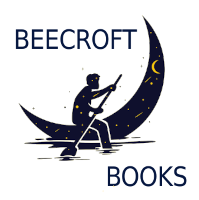Review of ‘Transgressions’ by Erastes
I feel as though I’m always opening my reviews of Erastes’ fiction with some variation of ‘I know she’s my friend, but that doesn’t mean I’m just sucking up.’ I guess it keeps needing to be said. The fact is that when I find a writer whose work I like, I comment on their blogs to say how much I liked it, and then we get chatting. Maybe they read my stuff too and like it as well. Maybe we discover we have common interests… and before long we’re friends and I’m having to write disclaimers like the one above.
But becoming friends with someone doesn’t mean that you automatically stop loving their writing 🙂 And Transgressions is a case in point.
Was it C.S Lewis who said ‘you can never get a cup of tea too big or a book too long for me’? That’s quite applicable to me too, so I was delighted when I got the ARC of Transgressions in the post to find that it’s a really big book. There’s meat on its bones, and it gave me the wonderful luxurious feeling of knowing that I’d be spending the whole weekend or longer savouring it and chewing it over. It’s not one of those flimsy things that you read in an hour and wonder where the rest of it is.
Partly because of that, I think, it reads like a book that has world enough and time. Time to set the scene in the opening chapters with wonderful sensual description of the forge and the fields and the sky and our two young heroes when they were unscarred, naive and feckless.
There’s world enough and time for plot! Two plots, in fact, because David’s fatal flaw – his inability to speak the truth – leads both young men to be flung out of the idyll of their early days together. David learns a soldier’s trade, on the King’s side in the interminable and soul destroying battles of the English Civil War. Without any heavy-handedness, the reader can see him hardening, growing wiser, being on the other side of that slippery silver-tongued avoidance of the truth and learning from it. Through his relationships with the trooper Tobias and Hal, the scout, we rejoice and suffer and grow up with him.
Jonathan, in the mean time, stinging from David’s lies, is drawn into a company of people who seem to embody the truth – who hunt the truth out, no matter how awful it is. He joins Matthew Hopkins, the Witch-Finder General in his crusade to rid the country of witches and servants of the Devil. I have to admit that this is my favourite thread in the plot, not just for the agonised and abusive and kinky relationship between Jonathan and his mentor in witch-finding, the over-zealous, sadistic and slightly unhinged Michael. But also because I loved the fact that Erastes treats the subject completely believably from Jonathan’s POV.
I’ve noticed a tendency in some historicals for the sympathetic characters to have terribly modern attitudes – for them to be instantly anti-slavery, pro-the rights of women, pro-class equality and universal suffrage, etc, and in the hands of a lesser author I would have expected the hero to be instantly on the side of the poor defenseless old women. But it wouldn’t have been very authentic if he had. I loved that Jonathan took the threat of witchcraft seriously, and that it was part of his goodness as a good man to want to protect society from the ultimate evil, even if it cost him his autonomy and dignity.
Naturally he’s wrong about the good he’s trying to do, but that makes it all the more tragic and poignant when he starts to work it out.
If David is hardened and made responsible by his journey through the book, Jonathan is taken apart, and there’s something gloriously right about the fact that it’s David – the one who began his disintegration – who is the one to rescue him at the end and begin the process of healing him.
But Jonathan is now an important man in Cromwell’s government, and David is under arrest as a known soldier of the King. How on earth are they going to get out of that? Is Jonathan his own man enough not to condemn the one he loves, or is the happy ending only going to last for a single night? I wish I could say. All I can say is that this is absolutely gagging for a sequel! And I for one would also love to read about Jonathan’s career as a spy for Cromwell.
I think I might even like this book better than Standish; it’s more realistic, but it’s also more lyrical. The slower pace meant that I had time to get to know the characters more and the twists when they came were more startling.
It’s a book that transcends the bounds of romance and can be just as easily read as a piece of literature. Or it’s a piece of literature which is as easily and enjoyably read as a romance. It’s haunting and unforgettable. It’s very very good! It goes on my ‘I wish there were more like this’ shelf, or at least it will do once I’ve finished reading it again 🙂


[…] the sales rankings disappeared from two newly-released high profile gay romance books: “Transgressions” by Erastes and “False Colors” by Alex Beecroft. Everybody was perplexed. Was it a glitch of some sort? The […]